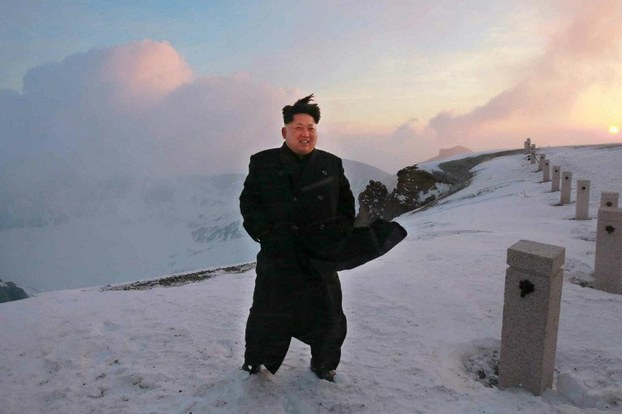




South Korea will need to show patience and magnanimity to persuade North Koreans that unification will benefit both halves of the Korean peninsula, a group of experts said at a recent panel.
The experts told an audience at Chapman University in Los Angeles that the South should emulate West Germany's approach to the former East Germany, taking time to explain its policies and winning the trust of its communist neighbors that made unification acceptable.
"West Germany had become in most East German minds seen as an entity that they could deal with," said Lynn Turk, a member of board of directors at the Pacific Century Institute.
"The West Germans did a good job of persuading the East Germans that it was tolerable, and the South Koreans have to do that as well," he said.
Turk recommended that Seoul propose a long-term target date for unifying the wealthy, capitalist South with its poor communist northern half -- a step that "gives them enough time to do all those things that will be necessary to cushion and make unification tolerable and pleasant."
Bruce Bennett, a senior research fellow at the Rand Corporation think tank, said that North Korean residents should frequently be exposed to broadcasts and consumer goods from outside their country. Unification requires slow preparations under a detailed plan to minimize side effects.
Bennett said a recent poll of North Korean citizens living in China showed 95 percent thought life would be better if the Koreas unified, but respondents believed that the elites of North Korea were "the stumbling block."
"It's the elites with which we've got to work," he said.
Bennett argued against the temptation to conduct "deBaathification" of North Korea -- removal of all former leaders and ruling party members as was done a decade ago in Iraq after Saddam Hussein was toppled.
"If you do that, the elites will never support that unification," he said.
North Korea has attempted to assassinate South Korea's president several times and committed numerous atrocities against the South since the 1950-53 Korean War sealed the division of the peninsula into two hostile states, Bennett noted.
Notwithstanding resentment toward the North Korean leadership over this history, "we've got to be prepared to consider compromise and that is politically very difficult," he said.
"We've got to consider retention of wealth, retirement, amnesty -- all things that are going to be hard to swallow politically in South Korea, but are essential," said Bennett.
Reported by Ji Seoung You for RFA's Korean Service. Translated by Yunju Kim. Written in English by Paul Eckert.